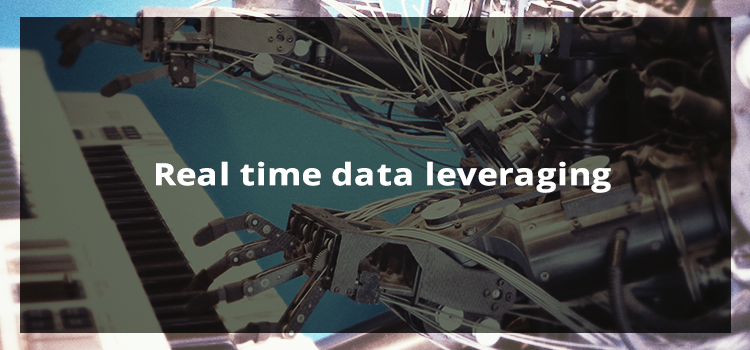In nowadays marketing world, you can’t search for the next trend without reading something about artificial intelligence. It’s said that it will revolutionize the marketing world, help marketers tap into big data and is the key to unlocking the marketing potential of the Internet of Things.
Like most things in today’s marketing landscape, the value of artificial intelligence is tied to data. Customer data. The more data brands and merchants capture and retain from an ever-widening variety of touch points, the more marketers will need to lean on advanced technology tools like AI to identify patterns and extract actionable intelligence.
Finding the right data
Many marketers are already relying on artificial intelligence for this functionality today with many others starting to see the benefits of finding new audiences with AI and machine learning. These technologies are uniquely suited to comb through reams of seemingly-unrelated data and pull out recurrences and patterns that point to new markets, segments, or other opportunities.
The availability of increasingly extensive data sets means that the use of AI for rapid and accurate interpretation will only increase.
The personalization game
Segmentation and targeting existed long before AI ever was. But with it, the process of segmentation and execution of it on a more granular level can be expedited. The result: achieving a singular customer view and true person-based marketing.
Furthermore, AI will be better able to track what type of content consumers are most interested in, allowing marketers to create more personalized, natural content tailored to individuals.
And this in return will obviously impact a wide range of marketing activities, from persuasive content to offers and promotions to loyalty program interactions.

Real-time data leveraging
Perhaps the most impactful AI-related development will be the automation of marketing. Not automated to the point that the need for human marketers is eliminated, but automated to the point it deploys real-time offers based on predicted behavior, manages and updates databases without prompting and executes intelligent multichannel campaigns on the fly.
If AI can take those moment-by-moment decisions, marketers will be able to devote more resources to big-picture strategy and to assessing their marketing approach at a higher level.
Marketers have no shortage of tools, data sources, analytics packages, and marketing technology software services at their disposal. AI is the tool that can manage the rest, integrating insights, leveraging discrete data sets in order to facilitate personalization, and executing real-time decision making.
Marketers that embrace artificial intelligence for what it can do for them today will be able to optimize their current marketing efforts and be incredibly well-positioned for overall success in the AI-enabled future.

